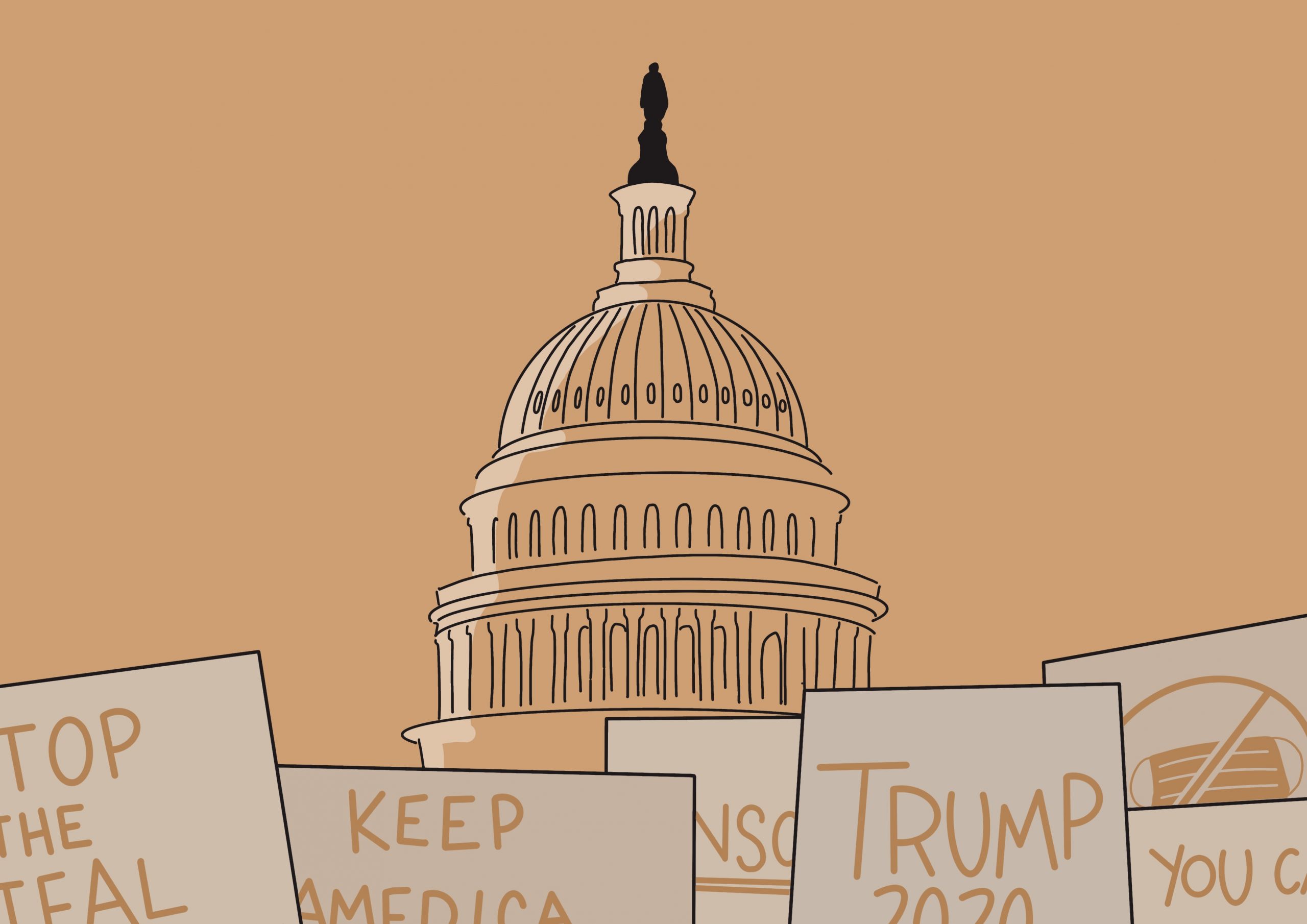Whilst congress were in the process of certifying Biden’s election victory on January 6th, a pro-Trump-rally-turned-riot stormed the US Capitol in an insurrection attempt that resulted in five deaths and a historic second impeachment trial. To the disappointment of metal fans, Iced Earth’s guitarist John Schaffer was photographed amongst the mob breaking into the Capitol. Meanwhile, fans of alt-pop were perhaps unsurprised to see that long time vocal Trump supporter, conspiracy theorist and alt-right crusader Ariel Pink had also attended the MAGA rally, pictured on the private instagram account of filmmaker Alex Lee Moyer with musician John Maus in a hotel in DC, captioned “the day we almost died but had a good time”. In the days following, music fans and industry figures rallied to express their disappointment in and condemn the actions of Pink, Maus and Schaffer. The other members of Iced Earth took to Instagram, releasing a joint statement on bassist Luke Appleton’s account condemning the riots. In a more concrete action, Ariel Pink was dropped by his label, Mexican Summer. To me, these events are a microcosm of the paradoxical result of treating celebrities as political actors, and raise questions about the inconsistencies in the application of accountability.
There’s a stark contrast between the repercussions faced by John Schaffer and Ariel Pink; Schaffer was very clearly pictured having breached the government building, his image later appearing in a presentation from the DC police detailing suspects wanted by the FBI for unrest-related offences. Yet his bandmates failed to directly condemn his actions in their Instagram post, or even mention his name. Meanwhile, Ariel Pink confirmed his attendance at the rally on social media, but claims to have been there only to peacefully support the president. Supposedly guilty only of attending a rally in support of his by no means secret political views, Pink’s career has been stifled. Whilst Mexican Summer are within their right to hold their talent to whatever moral or political standard they wish, it must be asked; why were the events at Capitol Hill the catalyst to his dismissal, rather than his remorseless misogyny, comparisons of homosexuality to paedophelia and necrophilia, his appearances on alt-right podcasts in which he spreads pandemic misinformation, or the “cesspit” of his now-deleted twitter?
In an increasingly divisive political climate, celebrities are expected to divulge and be judged for their political leanings, regardless of if they ever wished to be political in the first place. The result is often inconsistent, messy and exhausting. Politics has become an arena either for opportunistic celebrities to grasp at relevance, or for unwitting public figures to be torn to shreds for an opinion they never really wanted to share in the first place. We end up with artists like Lana Del Rey, doubling down on misguided remarks and clumsy stances, digging herself a deeper and deeper hole with her perfectly manicured talons whilst her liberal fans look on in horror. When Taylor Swift relinquished her belligerent apolitical stance in 2018, it was an event so monumental that it became a central plot point of her 2020 documentary Miss Americana. Her “coming out” as liberal was painted in the documentary as an act of defiance, but skeptics viewed it as a calculated ploy to shed comfortable neutrality in favour of trendy progressivism. On the other side of the political spectrum her lifelong nemesis Kanye’s pro-MAGA ravings drew criticism and confusion from his peers, yet his now-rescinded support for Trump had little impact on his career. Meanwhile Grimes, who once wrote a feminist manifesto, quietly removed “anti-imperialist” from her twitter bio once she started dating Elon Musk, who would soon become the richest man in the world. It’s hard to respect the views of those with a PR team, even if they align with my own.
The bottom line is that these people, with all their hypocrisy, have undeniable influence, and with influence comes both responsibility and scrutiny. Heightened polarisation and social media’s erosion of the private has forced celebrities to transition from entertainers to political actors, but the notion of accountability is murky and contradictory. This can be seen in the disparate outcomes of Ariel Pink and John Schaffer’s involvement in the events at the Capitol, and how Mexican Summer’s dismissal of Ariel Pink, although commendable in theory, feels more like an opportune hollow gesture in response to public outcry rather than a genuine moral stance. Our commendation and condemnation of celebrity political opinion and the resultant backlash must be critically reassessed, and it has to be asked; When celebrities wield such influence, is keeping their views private really so damaging? How can we trust that a celebrity’s political alignments are genuine? And when we demand that celebrities publicise their political leanings, what happens if we don’t like them?
Image: Eve Miller

